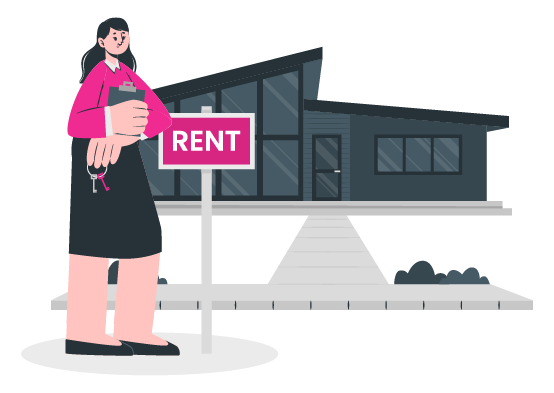Being a landlord can be a rewarding experience, but it also comes with its fair share of challenges. One of the biggest challenges landlords face is when tenants don’t pay their rent on time. This can be a stressful and frustrating situation, but there are steps that Irish landlords can take to address the issue and protect their investment.
Understanding the Rights and Responsibilities
As a landlord in Ireland, it’s important to understand your rights and responsibilities when it comes to dealing with tenants who don’t pay rent. The Residential Tenancies Act 2004 sets out the rules and regulations that govern the relationship between landlords and tenants, including what landlords can do in the event of rent arrears.
Under the Act, landlords have the right to take legal action against tenants who fail to pay rent. This can include issuing a notice of termination, applying to the Residential Tenancies Board (RTB) for a determination order, or taking the matter to the courts.
Communicating with Tenants
Before taking any legal action, it’s important to try and resolve the issue with your tenant through open and honest communication. Reach out to your tenant to discuss the situation and try to come to a mutually agreeable solution. This could involve setting up a payment plan, renegotiating the terms of the lease, or finding a new tenant to take over the property.
It’s important to document all communication with your tenant in case you need to provide evidence in court. Keep records of any letters, emails, or phone calls related to the rent arrears.
Issuing a Notice of Termination
If your attempts to resolve the issue with your tenant are unsuccessful, you may need to issue a notice of termination. This is a formal notice that informs the tenant that their tenancy is being terminated due to non-payment of rent. The notice must comply with the requirements set out in the Residential Tenancies Act, including the length of notice required and the reasons for termination.
Once the notice of termination has been issued, the tenant has a specified period of time to vacate the property. If they fail to do so, you may need to take further legal action to have them evicted.
Applying for a Determination Order
If your tenant refuses to vacate the property after receiving a notice of termination, you can apply to the Residential Tenancies Board (RTB) for a determination order. This is a legal order that allows you to regain possession of the property and evict the tenant. The RTB will review the case and make a decision based on the evidence provided by both parties.
It’s important to follow the correct procedures when applying for a determination order to ensure that your application is successful. Provide all relevant documentation and evidence to support your case, and attend any hearings or mediation sessions as required.
Going to Court
If all other attempts to resolve the issue have been unsuccessful, you may need to take the matter to the courts. This can be a lengthy and costly process, but it may be necessary to protect your rights as a landlord. The court will review the case and make a decision on whether the tenant should be evicted from the property.
It’s important to seek legal advice before proceeding with court action to ensure that you understand your rights and responsibilities as a landlord. A solicitor can help you navigate the legal process and represent you in court if necessary.
Conclusion
Dealing with tenants who don’t pay rent can be a challenging and stressful experience for Irish landlords. However, by understanding your rights and responsibilities, communicating effectively with your tenants, and following the correct legal procedures, you can protect your investment and resolve the issue in a fair and timely manner.
If you find yourself in a situation where your tenant is not paying rent, don’t hesitate to take action. Reach out to your tenant to discuss the issue, issue a notice of termination if necessary, and seek legal advice if the situation escalates. By taking proactive steps to address the issue, you can minimize the impact on your finances and maintain a positive relationship with your tenants.

